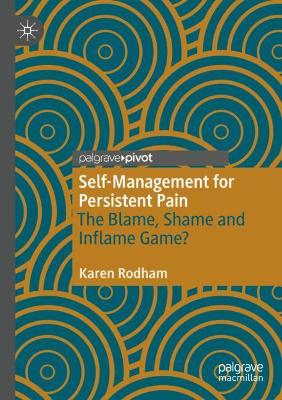(To see other currencies, click on price)
MORE ABOUT THIS BOOK
Main description:
This book critiques the current approach to the self-management of persistent pain. The drive towards self-management of chronic pain is flourishing as healthcare systems struggle to facilitate the care of those with long term health conditions. In this book Karen Rodham argues that albeit an empowering idea, self-management has not yet been fully translated from idea to practice and as such, runs the risk of blaming and shaming the person living with a chronic condition for failing to manage their condition effectively. She contends that the additional stress of this tension may in fact worsen their condition. Drawing from the research evidence as well as her practice experience, she advocates a move away from the terms 'self' and 'management' towards a more collaborative approach. One which takes account of the life-context of the person who is living with persistent pain.
This book explores the shortcomings of the tendency to focus on self-management without taking into account life context and considers how we got here and what can be done. It will be a valuable resource to researchers and practitioners, especially in the field of health psychology.
Contents:
Chapter 1: Self-management the panacea for coping with persistent pain?.- Chapter 2: Self-management as presented in policy.- Chapter 3: Self-management in practice: Mind the gap.- Chapter 4: Does pain self-management result in the blame, shame and inflame game?.- Chapter 5: Re-imagining self-management.- Chapter 6: An invitation to make a difference.
PRODUCT DETAILS
Publisher: Springer (Springer Nature Switzerland AG)
Publication date: July, 2021
Pages: 125
Weight: 193g
Availability: Available
Subcategories: Anaesthetics and Pain, General Practice, Public Health

